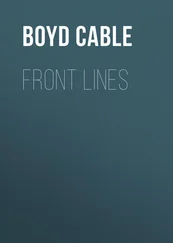Anne Siddons - Fault Lines
Здесь есть возможность читать онлайн «Anne Siddons - Fault Lines» весь текст электронной книги совершенно бесплатно (целиком полную версию без сокращений). В некоторых случаях можно слушать аудио, скачать через торрент в формате fb2 и присутствует краткое содержание. Жанр: Старинная литература, на английском языке. Описание произведения, (предисловие) а так же отзывы посетителей доступны на портале библиотеки ЛибКат.
- Название:Fault Lines
- Автор:
- Жанр:
- Год:неизвестен
- ISBN:нет данных
- Рейтинг книги:3 / 5. Голосов: 1
-
Избранное:Добавить в избранное
- Отзывы:
-
Ваша оценка:
- 60
- 1
- 2
- 3
- 4
- 5
Fault Lines: краткое содержание, описание и аннотация
Предлагаем к чтению аннотацию, описание, краткое содержание или предисловие (зависит от того, что написал сам автор книги «Fault Lines»). Если вы не нашли необходимую информацию о книге — напишите в комментариях, мы постараемся отыскать её.
Fault Lines — читать онлайн бесплатно полную книгу (весь текст) целиком
Ниже представлен текст книги, разбитый по страницам. Система сохранения места последней прочитанной страницы, позволяет с удобством читать онлайн бесплатно книгу «Fault Lines», без необходимости каждый раз заново искать на чём Вы остановились. Поставьте закладку, и сможете в любой момент перейти на страницу, на которой закончили чтение.
Интервал:
Закладка:
T. C. Bridgewater was suddenly beside me, looming up out of the fog like Paul Bunyan in his black beard and lank-hanging hair and checked shirt. He knelt and peered at me, one arm around the dog’s neck. The dog sat leaning against him, red tongue lolling, grinning the lupine grin of a canine in perfect harmony with his world. When I sat up he gave a soft woof , sending a warm gust of meaty breath into my face. It was the smell of home: Alpo. I fed it to Samson and Delilah.
“Are you okay?” T. C. Bridgewater said, clumsily brushing at the dirt on my jacket and pants. “He heard you before I did and was out of there before I could catch him. Sorry if he scared you. He wouldn’t hurt you. Curtis loves to have visitors.”
“I can see that he does,” I said, too grateful for the presence of Caleb’s hermit to be angry. Fear usually does that to me, but not this fey white morning.
“I was expecting you,” he said, taking my hand and pulling me to my feet. “Your sister said you needed to make some phone calls and then you’d be wanting to take your daughter over to Palo Alto a little later on. Come on up; I made another pot of coffee.”
“I don’t want to put you out,” I said formally. My knees were stiff from the fall, and there were gravel abrasions on the heels of my hands that were beginning to sting. “I know you don’t go out often. After this I promise I won’t bother you.”
“It’s no bother. I welcome any excuse to get out and about. It’s hard work, being a hermit,” he said, striding ahead of me. The dog Curtis brought up the rear, panting companionably. Every now and then he nosed my thigh gently as if to tell me that he was behind me and all was well.
A formless group of shapes loomed out of the fog as we climbed the trail, and I remembered the anonymous machinery from last night, and the bulky vehicle. We stepped up to a near invisible wooden deck, low and broad, and I saw that there were deck chairs and a couple of worn chaises there, and an umbrella table, and dishes and bowls sitting under a rusty water tap. Curtis’s dining room. The deck circled the base of the tower, and at one end a canvas overhang had been rigged, and a hammock and a table spilling over with books sat under it, along with a spindly-legged black steel grill and a sagging old sofa, also spilling its cargo of books. The sofa had an untidy nest of blankets on it. It was plain that T. C. Bridgewater did much of his living here. Perhaps it was his summer home. The little house atop the tower had seemed very small last night. I would, I thought, want a place in which to drink in the wildness clear of walls and a ceiling, too.
“I hate to make you do it,” he said over his shoulder, “but you’ll have to climb the tower to use the phone. I keep thinking I’ll get one of those cellular things, but I forget…watch your step. It’s better than a ladder, but only just.”
He was right. I grasped the stout railings and began to climb the steep, long staircase behind him, feeling dizzily that I was climbing into nothing. After a moment or so I lost sight of his legs and feet in the fog. Behind me I could hear the scratch of Curtis’s toenails on the weathered wood, and his panting. Even with a landing, the climb seemed endless. I wondered if Curtis often bothered.
Just as I was beginning to tire, my head and shoulders broke through the fog and I gasped. We were only a step or two from the top of the tower, and as far as I could see on every side, the fog rolled away in billows and waves, a silent silver-white sea, pricked with the ghostly tops of the redwoods. The sunlight here was fresh and strong and struck such light off the fog that I slitted my eyes involuntarily against it. It was spectacular. We were literally bathed in strange, radiant, sun-and-fog light, and the air was many degrees warmer than on the ground and smelled of pine with the sun on it.
I followed him into the single small, square room and Curtis heaved himself in behind me and flopped gratefully on the floor. The room was perhaps fifteen by fifteen feet, and all its walls were windows. A skylight opened the flat roof to the sky, and the whole thing seemed to sway slightly with the unseen, unceasing wind. It was strange to hear the voice of the wind coming from below us, but on this ridgetop there were few of the huge redwoods, and the other trees did not reach us. The tower sat in a clearing, and I remembered that its original use was that of a fire tower. I thought that from here, when the fog had lifted, you could see a fire a hundred miles away in any direction. Now we saw only the endless floor of fog and the tops of the redwoods, rising and falling on their ridges until they met the hidden sea.
I stood looking, turning around in a circle.
“I think I might never leave it,” I said.
“I don’t, much,” he said. “So you like it?”
“Yes. Well…I don’t know. I live in the woods at home, but they’re so much tamer. Lower, and more open. I live on a river bank, but it’s a gentle river. I don’t know.…I’m so used to having hidey holes and little nooks and crannies around me, places you can go and feel snug and hidden; safe places. Up here you couldn’t hide from anything, ever. It’s beautiful, but I don’t know if I’d ever get used to it.”
“Yeah, I know,” he said. “When I first came up here I was like a cat trying to make a home on a roof. I couldn’t settle down and get comfortable. I put up curtains to shut everything out, and built the deck down there just so I could get down on ground level once in a while. I spent a lot of time in bed with the covers pulled up over my head. It was winter then; I thought I’d made an awful mistake. But by the time spring came I couldn’t stand walls around me anymore, and got antsy when I was shut up in rooms, and so I took down the curtains and put in the skylight. It gets to you. You get so you can’t live with anything between you and the wildness.”
He walked over to a tile counter where a coffeemaker stood, next to a small microwave oven and a neat little convection oven. There was a miniature sink, too, and a tiny refrigerator sat underneath the counter. It all occupied only one of the walls, a model of compactness and planning. But it was wildly, baroquely messy. On the other walls were waist-high wooden counters with bookshelves under them or drawers. An open space with a chair in it made a desk. A double bed was placed at an angle to one corner, piled high with colored pillows and draped with what looked to be a beautiful old Chief Joseph blanket. A tall, skinny armoire stood opposite it in the other corner. A big, black cast iron stove occupied the middle of the room, vented out the skylight, and there were big floor pillows and a wooden box of firewood ranged around it. The bed looked directly at the glass door where the flames would dance, and I thought that even on the coldest winter night, with the Pacific gales howling and sleet and snow spitting against the windows and the skylight, that bed and indeed this whole room must be as warm as a small animal’s burrow. The room was, somehow, an enchantment. It had the charm of a child’s playhouse, but the particular and intimate air of someone’s real home, an adult one. There were books literally everywhere, and in front of one of the windows a big telescope was drawn up.
“What a perfect aerie,” I said, taking a cup of coffee from him. I sat down on the edge of his bed. There was nowhere else to sit. He had sunk cross-legged to one of the big pillows, and Curtis lay sprawled on the other, giving occasional little groans of contentment. He promptly went to sleep.
The coffee was hot and strong. I sipped it gratefully. The stove was not lit, and the room still held the chill of the thin air and the fog.
“I could light a fire,” T.C. said. “But I figured you’d want to call and then get on the road over to Palo Alto. By the time things warmed up we’d be gone again. Wrap that blanket around you. I’ll hand the phone over to you; one advantage of this place is that the phone reaches anywhere in it. I’ll go on back down if you need privacy.”
Читать дальшеИнтервал:
Закладка:
Похожие книги на «Fault Lines»
Представляем Вашему вниманию похожие книги на «Fault Lines» списком для выбора. Мы отобрали схожую по названию и смыслу литературу в надежде предоставить читателям больше вариантов отыскать новые, интересные, ещё непрочитанные произведения.
Обсуждение, отзывы о книге «Fault Lines» и просто собственные мнения читателей. Оставьте ваши комментарии, напишите, что Вы думаете о произведении, его смысле или главных героях. Укажите что конкретно понравилось, а что нет, и почему Вы так считаете.












